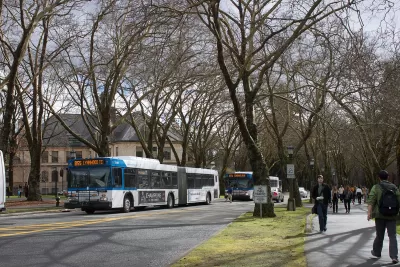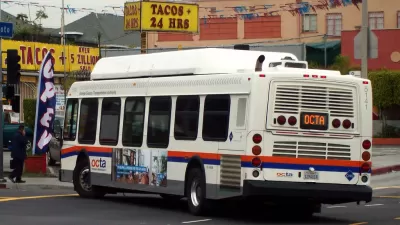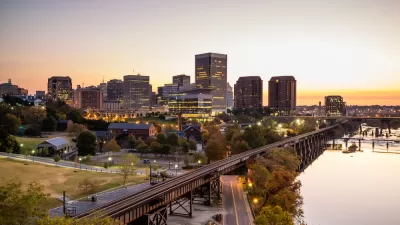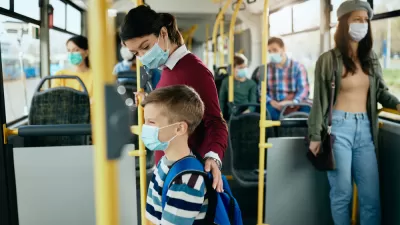A lack of access to affordable and reliable transit is being cited as a major reason why many college students don't finish school.

"At a time when colleges are increasingly focused on how to get and keep students enrolled and on a path to a degree, some of the most surprising challenges are not academic but logistical," writes Charlotte West. One of these challenges: affordable, reliable transportation.
With the majority of U.S. college students commuting to class, transportation can make a crucial difference for millions who cannot access or afford transit services. One study found that "Hispanic students were 19 percent more likely to report transportation problems as creating a barrier to college completion than non-Hispanics." Lack of access to transportation can lead students to miss classes and fall behind, while expensive car repairs and transportation costs can put students in even deeper debt.
In response, some colleges and cities have launched programs that provide low-cost or free transit passes and bring education closer to students with satellite campuses located near transit, sometimes funded with COVID-19 relief funds.
Rural students face their own set of challenges as they're often reliant on personal transportation in regions with sparse public transportation services. In these cases, colleges can help students by providing their own shuttle services or grants to help students pay for car repairs. According to research cited in the article, supporting effective and affordable transportation for students can have a positive impact on students' chances to stay enrolled and graduate, while advocates of fare-free transit argue that eliminating fares would increase equity and bring more people closer to economic opportunities and urban amenities.
FULL STORY: A surprising reason preventing some students from finishing college: Lack of transportation

Alabama: Trump Terminates Settlements for Black Communities Harmed By Raw Sewage
Trump deemed the landmark civil rights agreement “illegal DEI and environmental justice policy.”

Planetizen Federal Action Tracker
A weekly monitor of how Trump’s orders and actions are impacting planners and planning in America.

The 120 Year Old Tiny Home Villages That Sheltered San Francisco’s Earthquake Refugees
More than a century ago, San Francisco mobilized to house thousands of residents displaced by the 1906 earthquake. Could their strategy offer a model for the present?

In Both Crashes and Crime, Public Transportation is Far Safer than Driving
Contrary to popular assumptions, public transportation has far lower crash and crime rates than automobile travel. For safer communities, improve and encourage transit travel.

Report: Zoning Reforms Should Complement Nashville’s Ambitious Transit Plan
Without reform, restrictive zoning codes will limit the impact of the city’s planned transit expansion and could exclude some of the residents who depend on transit the most.

Judge Orders Release of Frozen IRA, IIJA Funding
The decision is a victory for environmental groups who charged that freezing funds for critical infrastructure and disaster response programs caused “real and irreparable harm” to communities.
Urban Design for Planners 1: Software Tools
This six-course series explores essential urban design concepts using open source software and equips planners with the tools they need to participate fully in the urban design process.
Planning for Universal Design
Learn the tools for implementing Universal Design in planning regulations.
Clanton & Associates, Inc.
Jessamine County Fiscal Court
Institute for Housing and Urban Development Studies (IHS)
City of Grandview
Harvard GSD Executive Education
Toledo-Lucas County Plan Commissions
Salt Lake City
NYU Wagner Graduate School of Public Service





























